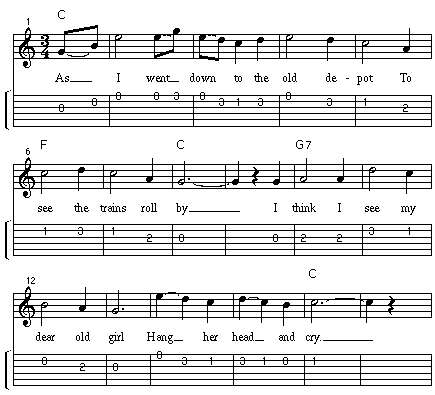The Highwayman- Charlie Poole (NC) 1926 REC
[From Charlie Poole and his NC Ramblers recording Columbia- 15160D, made on 9-20-1926. This is a combination of "Poor Boy" and 'Hangman." Poole also recorded Hangman Hangman Slack That Rope in 1928. Poor Boy (Meade) is related to Roving Gambler, which has the line, "I love that gambling man." Cf. Poole's last line.
I've reproduced Lofgren's article about The Highwayman below. Curiously, this version was collected probably in the late 1920s- early 1930s (date given was 1931, the book was published in 1938) and published by Melinger Henry with notes by Kittredge (see: The Highwayman- Henry E). This shows the possible effect of recordings on the collection of traditional ballads and folk-songs. Henry and Kittredge had no idea that the version may have come from Charlie Poole.
Listen to Poole: http://www.youtube.com/watch?v=f91-YVzOmX4
Asa Martin and Bob Roberts' 1933 song "Hang down your head and Cry" is likely a cover song.
R. Matteson 2012, 2015]
The Highwayman [Child #95]
by Lyle Lofgren
(Originally published: Inside Bluegrass, August 1999)
County Records has released three volumes of CD reissues of Charlie Poole, and this article is the first salvo of my campaign to foment a Charlie Poole revival. Rather than try to decipher my inadequate tune transcription, rush out and buy County CD-3516 (Volume 3), which has this song. The recording and Charlie are in excellent condition.
Charlie Poole and his band (the North Carolina Ramblers) were from the cotton-mill town of Spray (now combined with Leaksville and Draper to form the town of Eden), right on the North Carolina/Virginia border south of another cotton-mill town, Danville, that was the site of the wreck of the old 97. Charlie began working in the mills when he was very young, but the mill (for some unknown reason) brought in a music teacher to give the youngsters music lessons. Charlie therefore learned both the traditional music around him and the techniques to allow him to learn Broadway and ragtime songs. He modified the three-finger style used for classical five-string banjo playing to a jazzy, syncopated style that influenced later generations of banjoists, leading to bluegrass banjo. If Charlie had used finger picks and a resonator banjo, he would have sounded very much like bluegrass.
Meanwhile, long ago in England, there was a maid who was to be hung for an unnamed crime. It must have been pretty bad, though, because every family member who shows up is there to make sure she's dead. [Editor's Note: Few versions specify, but the earliest British forms imply fornication in some form -- the girl is accused of having lost her virginity.] This song, The Maid Freed From the Gallows, is one of those easy-to-remember formula songs where you only have to substitute one relative for each verse. Finally, True Love shows up with money and saves her from hanging. It didn't take long for this maid to have a sex-change operation -- almost all the American versions imply a male criminal and a female true love. The money involved is either a bribe or the payment of a fine. It's hard to tell. We read about tribal societies where a (criminal) wrong can be righted by a (civil) payment to the wronged family. Even we, with our sophistication, sometimes have trouble keeping the distinction straight. I remember a lecture by Noam Chomski, the linguist/social critic, at the U. of Minnesota, where he stated that America is a wonderful country, because you can have all the justice you can afford to pay for. When the audience laughed, he said, "No -- I'm serious. There are countries where you can't get justice even for money."
Poole was obviously familiar with the original, but when he recorded this (1926), he combined some floating hobo verses with a cut-to-the-chase ending from the old ballad. It's performed in straightforward 3/4 time with little of the ragginess of some of his other songs. Two years later, he recorded the original ballad as Hangman, Hangman, Slack the Rope. It's pretty good, too, but, to me, this version is more interesting than the formulaic original.

Complete Lyrics:
As I went down to the old depot
To see the trains roll by,
I think I see my dear old girl
Hang her head and cry.
The night was dark and stormy,
It surely looked like rain;
Not a friend in this whole wide world,
No one knew my name.
Nobody knew my name, poor boy,
No one knew my name;
Not a friend in this whole wide world,
And no one knew my name.
"Wait, Mister Judge, oh, wait, Mister Judge,
Wait a little while;
I think I saw my dear old girl,
She's walked for miles and miles."
"Dear girl, have you brought me silver?
Dear girl, have you brought me gold?
Have you walked these long, long miles
To see me hanged upon a hangman's pole?"
"Dear boy, I've brought you silver,
Dear boy, I've brought you gold;
I have not walked these long, long miles
To see you hanged upon a hangman's pole."
She saved me from the scaffold,
She untied my hands;
Tears rolled down that poor girl's cheeks,
"I love that highwayman."
--------------------------------------------------------------------------------
Bibliography
As The Maid Freed from the Gallows, this is Child #95; a full background can be found in Child and a fairly complete set of versions in Bronson's Traditional Tunes of the Child Ballads. (Child has eleven texts, and Bronson no fewer than 68 versions.) Most known versions are found in Bronson, but see also the recent publications of Warner and McNeil.
This is also one of the few Child Ballads known in the West Indies.
The song which seems the primary source for Poole's modified version is Ten Thousand Miles Away from Home [Laws H2], which has versions such as The Danville Girl. Compare also Laws H4, The Roving Gambler (The Gambling Man).